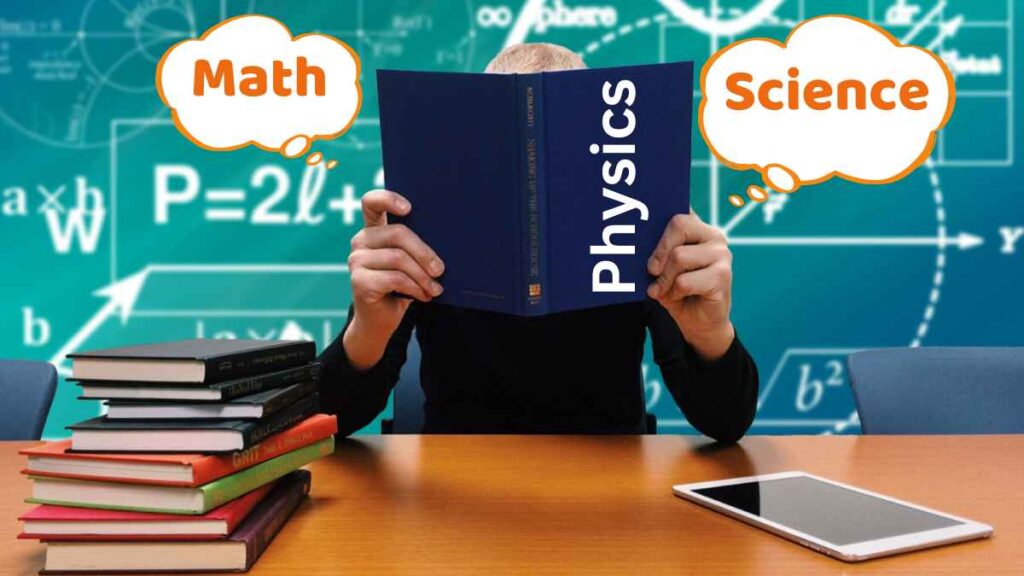Is Physics Math or Science?
Physics is a branch of science that utilizes mathematics as a powerful tool. Mathematics provides a language and framework for physicists to express theories and construct mathematical models.
Physics is the branch of science that investigates the behavior and properties of matter and energy. It aims to unravel the fundamental laws governing the universe, from the tiniest particles to the vast expanses of space. Mathematics, on the other hand, is a tool for abstract reasoning and problem-solving. It provides a language and framework to describe and quantify natural phenomena.
Is Physics Math or Science?
The question is physics math or science? is a topic of much debate. Some argue that physics is an application of mathematics to explain the natural world, making it a subset of mathematics. Others contend that physics encompasses more than mathematical formalism, incorporating empirical observations and experimental validation, thus classifying it as a distinct branch of science.

Ultimately, the answer lies in recognizing the symbiotic relationship between physics and mathematics while appreciating their individual contributions to our understanding of the universe.
The Relation Between Physics and Mathematics
Physics and mathematics share a symbiotic relationship, with each field relying on the other for progress. Physics often utilizes mathematical tools to formulate theories and make predictions about the physical world. Conversely, mathematics finds inspiration and practical applications in the complex problems posed by physics. This interconnectedness has led to significant advancements in both disciplines throughout history.
The Role of Mathematics in Physics
Mathematics plays a crucial role in shaping the foundation of physics. It provides a rigorous framework for developing logical and consistent theories. Through mathematical analysis, physicists can derive relationships, equations, and laws that describe the behavior of physical systems. The elegance and universality of mathematics enable physicists to communicate their ideas effectively and make predictions that can be tested through experiments.
Physics Concepts Explained Mathematically
One of the hallmarks of physics is the ability to explain complex phenomena through mathematical formalism. From classical mechanics to electromagnetism and quantum mechanics, mathematics acts as a bridge between abstract theories and empirical observations. Equations such as Newton’s laws of motion, Maxwell’s equations, and Schrödinger’s equation provide a mathematical representation of the underlying physical principles, allowing physicists to make precise predictions about the behavior of systems.
Mathematical Models in Physics
Mathematical models are indispensable in physics. They allow physicists to simulate physical phenomena, study intricate systems, and test hypotheses. Models, often expressed as sets of differential equations or algebraic formulas, capture the essence of physical processes. These models facilitate the exploration of complex systems that may be challenging or impossible to observe directly, leading to new insights and discoveries.
Theoretical Physics and Mathematical Rigor
Theoretical physics, a branch of physics that deals with abstract concepts and mathematical frameworks, heavily relies on mathematical rigor. To develop intricate theories, theoretical physicists use advanced mathematical techniques, such as calculus, differential equations, and group theory. By applying rigorous mathematical reasoning, they uncover new principles, propose hypotheses, and strive to explain the fundamental laws that govern the universe.
Quantum Mechanics and Mathematical Formalism
Quantum mechanics, a revolutionary theory that describes the behavior of particles at the microscopic scale, relies extensively on mathematical formalism. The wave functions and operators of quantum mechanics are represented using complex mathematical notation. The mathematical framework of quantum mechanics allows physicists to calculate probabilities, predict particle interactions, and develop technologies like quantum computing.
The Limitations of Mathematics in Physics
While mathematics is a powerful tool in physics, it does have its limitations. Not all physical phenomena can be adequately described or understood purely through mathematics. Some aspects of nature, such as human consciousness or the origins of the universe, remain elusive and defy mathematical treatment. Mathematics provides a framework for exploring the physical world, but it is essential to acknowledge the boundaries of its applicability.

 written by
written by 

Leave a Reply